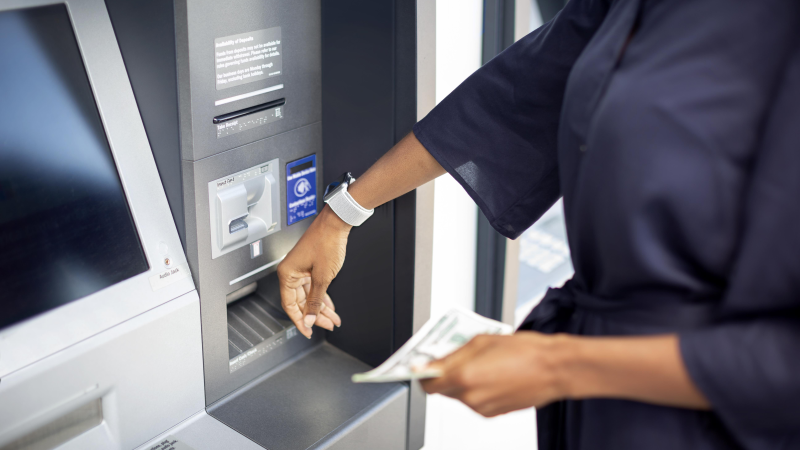Bank of tomorrow: trends shaping the future of money

How we manage our finances has undoubtedly changed over the past few decades. From visiting your teller to deposit or withdraw cash to banking at your fingertips, technology has fundamentally transformed our relationship with money, reshaping how we pay and get paid.
The pace of change is unlikely to slow down, as new FinTech players emerge, helping to redefine the global payments ecosystem, creating new types of banking products and services.
From current accounts to insurance, the ultimate aim for the bank of the future will be to offer better choice, improved access and more control in how we manage our finances, keeping us secure in the process. But what trends taking place today are shaping the bank of tomorrow? How can technology make a positive impact?
Banking for new economies
Technology has dramatically changed how we shop, trade and do business. Relatively new concepts like the gig economy and online marketplaces have become big drivers of global commerce and led to increasing demand for new types of banking services. To address this, banks are increasingly taking advantage of new technologies like artificial intelligence (AI) and blockchain to ensure users can still manage their finances with ease.
Already, we see many banks looking at the potential for blockchain to make back end processes more efficient whilst improving the overall user experience. Visa’s B2B Connect platform, which simplifies cross border payments, is one of the ways we’re working with partners to leverage blockchain technology.
Providers are also exploring the possibilities for AI to make banking simple and more secure. Already a key part of many FinTech’s customer service offering, AI has the potential to revamp how banks onboard new users, manage system issues and even prevent fraud. Our own AI solutions have already assisted providers in preventing an estimated US$25bn in annual fraud.
The death of the password?
As we move more of our financial lives online, the risks we face have evolved and so too must the protections offered by providers. Safeguarding consumers’ information and money in the digital age is complex and financial providers will need to take a multi-layered approach to cyber-security.
Traditional approaches to online payments – such as manually entering static passwords and payment credentials – will need to be adapted for the modern user. Instead, taking a blended approach to identification will make payments faster, easier and more secure when using computers, mobile devices, apps, wearables and future IoT devices. This will fall in line with increased regulation, such as Strong Customer Authentication (SCA) from the European Union, which will see consumers shift to authentication via face, fingerprint or voice recognition. We’re already working with various banking partners to test usage of fingerprint recognition as an alternative to PINs to authenticate the cardholder during a transaction.
The responsible bank
Addressing inequality and sustainable growth will be a priority for every financial institution this new decade. The UK Government stated in its 2019 Financial Inclusion Report, “financial technology can play a key role in tackling financial exclusion and offers opportunities for firms to develop innovative ways to increase consumer access to, and use of, financial services”.
It’s clear that providers that embrace opportunities to widen access of financial services to communities and segments of society that are underserved are likely to be rewarded by consumer loyalty and trust at a time when the market is increasingly fragmented.
Furthermore, more consumers are shopping consciously, looking to reduce their impact on the world. Hence, there will be expectation for financial providers to offer services that make it easier to make sustainable choices. Banks that can come up with innovative solutions to do this will be ahead of the curve in meeting consumer needs. Already, we see FinTechs like Tomorrow building a solid consumer base by committing to ethical und sustainable banking.
Visa, enablers of the banks of tomorrow
As the world’s leader in digital payments, our job is to enable financial institutions, whether that be incumbents, newly established players or the next generation of disruptors, harness technology and adapt to new challenges. With the strength of our network and the depth of our expertise, we can help you build the bank of tomorrow.
If you’d like to build with Visa, or find out more about how we work with partners, click here.